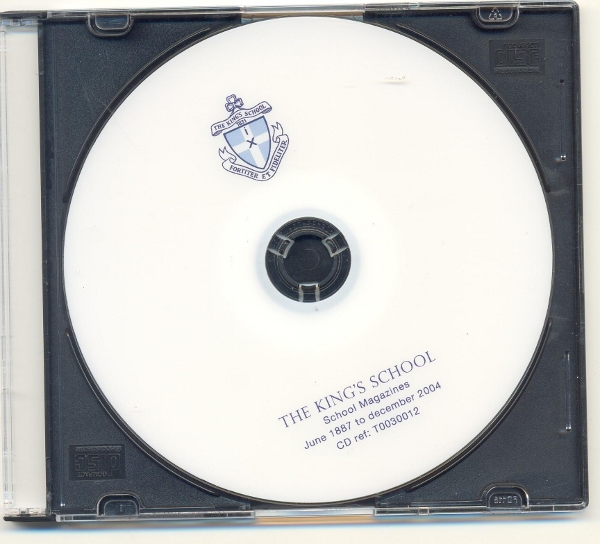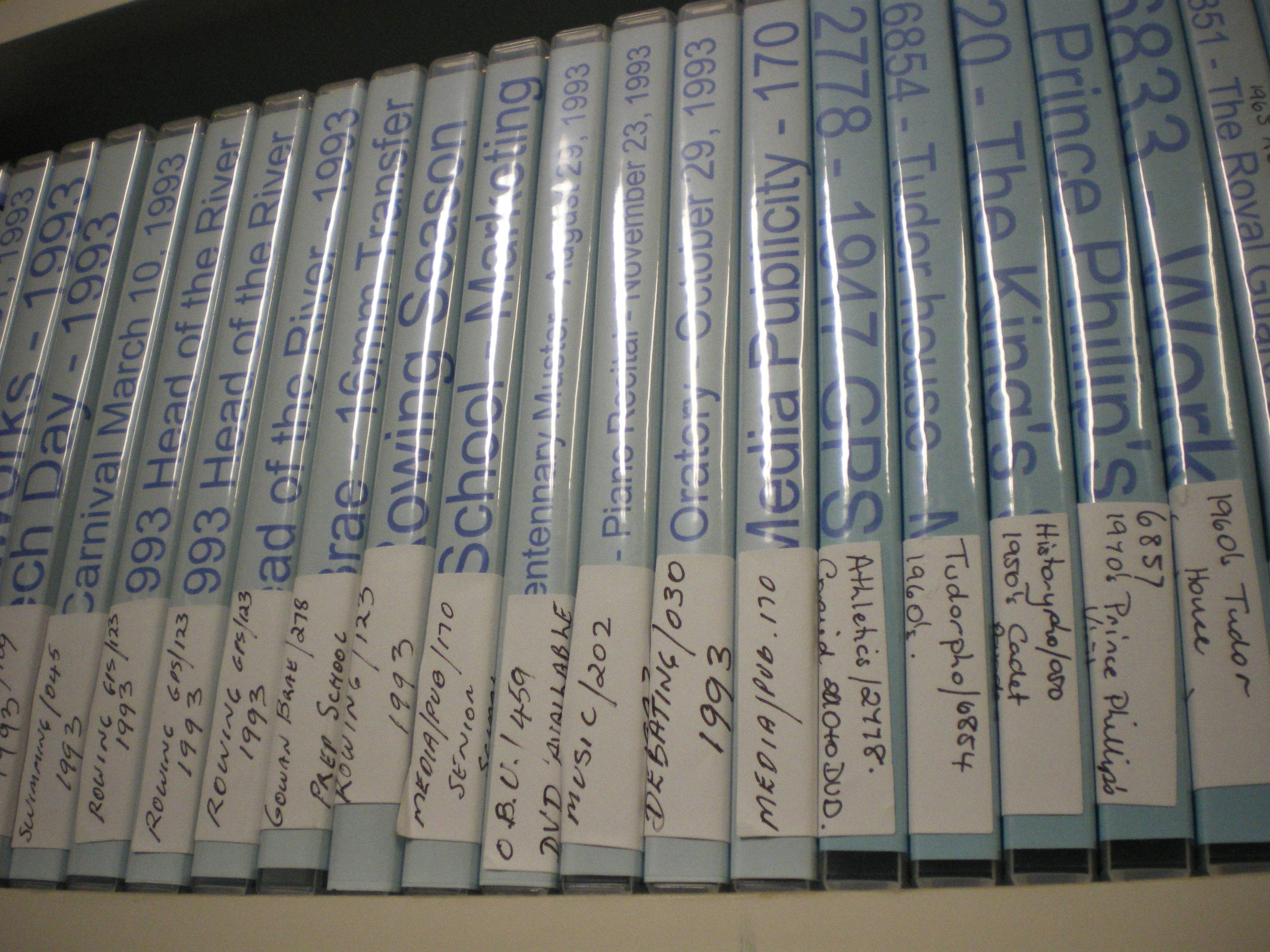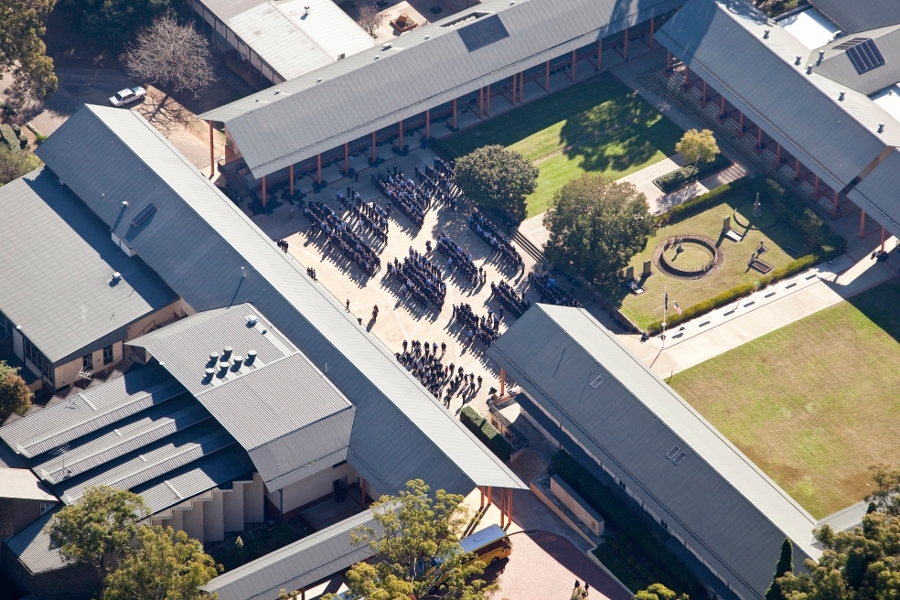Jenny Pearce is the Archivist for The Kings School.
As the Archivist in an organisation whose core business is education, providing digital access to the collection has been primarily a response to providing access for the Archivist rather than a desire to reach a wider audience. The wider community has however, been the grateful recipient of the digitised product.
Prioritisation
When determining what should be digitised soon after my arrival at the School, the first priority was to convert the information on the card catalogue to a commercial Archives specific database. For my predecessor, a very long serving member of staff, knowledge of the collection was second nature but to be able to quickly serve the clientele and at the same time develop an understanding of a multifaceted collection the digitisation process was essential. Fortunately the support of the Bursar meant that this priority didn’t have to wait until the next budget. This process completed I then decided that the two next most heavily relied on areas of the collection were The School Magazine and the photos.
Digitising Photographs
Obviously not all the official photos could be scanned at the same time, there were too many and the budget didn’t stretch that far but by presenting a three year plan to the Bursar for the digitising of photos the majority of the team photos dating back to the 1860’s were scanned and presented on a web based database. Each year thereafter it was a matter of having the current photos scanned as part of the recurring budget. Now the high resolution scans are available to teachers such as the ICT staff who use a selection to teach the boys how to “repair” photos using applications such as “Photoshop”. The goal is to one day have a selection of these photographs available on the School website.
Digitising the School Magazine
The School Magazines were the next project and as we had unbound spare issues dating back to 1887, it was a much cheaper and simpler task to have these scanned and digitised onto a single DVD. The benefit of this process is that it only requires Adobe reader, easily available, to read the PDF files which are searchable by keywords. The added bonus of this was that the wider school community were very interested in this DVD. It was placed amongst the online resources in the Centre for Learning and Leadership and by advertising in the school newsletter, selling the DVD’s at a very small cost has all but recouped the initial, outsourced scanning costs.
Positive flow-on effects within the School
Scanning the Magazines then prompted the Council to have their Minutes scanned as they saw the benefits of being able to “follow the trail “ of decisions made, electronically. An annual grant from the Old Boys Union over successive years has allowed for the digitisation of film and video  on to more accessible DVD’s copies of which have then been made available for reunions. This has been a win, win situation. Smaller in house projects have also taken place as part of the digitisation process. The Museum volunteer program has also been involved in the digitisation process. Over a 12 month period, two dedicated volunteers provided digital images of all the objects, trophies and Fine Art assets. These images have provided the foundation for object files which have been incorporated into the database and are a record of valuable assets for insurance purposes. Treasures from the Archives, particularly relating to World War One have been digitised in house and made accessible to the students via the Intranet as have student compiled House histories.
on to more accessible DVD’s copies of which have then been made available for reunions. This has been a win, win situation. Smaller in house projects have also taken place as part of the digitisation process. The Museum volunteer program has also been involved in the digitisation process. Over a 12 month period, two dedicated volunteers provided digital images of all the objects, trophies and Fine Art assets. These images have provided the foundation for object files which have been incorporated into the database and are a record of valuable assets for insurance purposes. Treasures from the Archives, particularly relating to World War One have been digitised in house and made accessible to the students via the Intranet as have student compiled House histories.
Planning the key to success
Obviously there is a great deal still to be achieved and it is a goal to make more of the collection available digitally to aid learning, however over a ten year period much has already been achieved. The key to the process has been planning
- Identify key areas of the Collection
- Spread the project out over a few years if possible or look at ways of financing the project ie a grant.
- Discuss whether it is more cost effective to outsource or complete the project in house. If you outsource doing the pre scanning preparation or creating the metadata yourself will save substantial funds.
- Be proactive and be prepared to digitise in house for a “special project” on demand to aid a colleague in the classroom
- Utilise the skills of your volunteers.

